Quoting the Late Tech Pioneer, Steve Jobs “”You have to be burning with an idea, or a problem, or a wrong that you want to right. If you’re not passionate enough from the start, you’ll never stick it out.” Finding one’s path in the business world and walking through it passionately can only lead to one destination; Greatness.
An Africa Celebrated Creative Entrepreneur and CEO of the WazaWazi Brand, Kenya, Chebet Mutai. Chebet Mutai is the Creative Director of Wazawazi, which is an Afrocentric lifestyle brand made in Kenya that tells the story of modern-day Africa using leather as their main medium of expression.
In this inspiring conversation,Chebet Mutai shares with us on her life as a business woman, Designer and Mother. She walks us through her journey from the corporate world to the design table, and now as one of Africa’s celebrated Leather Bags designer, who is telling her African story one piece at a time.
Can you share a little about Chebet Mutai, the individual, the businessperson and Wazawazi as a brand you represent?
I was born in Nakuru, Kenya in 1984, my fate was already cast to take my place in shaping Africa’s destiny, one art piece at a time. In my case, it was through the creation of functional leather art of luxury leather bags and accessories. Having studied at Kenyatta University where I graduated with a B.Ed. Economics and French, I progressed into an economist job at the World Bank – a dream career path for many and a seemingly natural progression for me. However, I gradually became restless about the direction of development work in Africa.Eventually, it was time to move on and do my part in shaping the African story by being an active part of the change. I decided to change careers and leave the job path at the World Bank to start the Wazawazi Company.
Wazawazi is an Afro centric luxury leather bag brand made in Kenya telling the story of modern-day Africa to the world. Every piece is art that tells a story and in turn, we have mastered balance between form, fashion and function. Wazawazi entails an open-minded outlook to life, self-expression of personal style and a celebration of diversity expressed through fashionable yet functional leather art. We are bold ambassadors for Africa by telling our stories, because they are beautiful.
What inspired the Wazawazi brand? What inspires you? Creative muse?
A stint at the World Bank Group, working on development work in Access to Finance in Africa exposed me to the real and reoccurring themes of the challenges facing the African continent. However, as is the case with many creative’s, this path was not as direct as it would be easier to fast-track the fulfillment of this creative destiny.
Surely, the change in Africa would not be driven by Washington DC-based initiatives but rather, owned and driven by Africans on the ground with a passion for this beautiful continent. Africans with dreams and ambitions for true and sustainable change and Africans with names, not statistical compositions in dossiers on development.
Our main inspiration & creative benchmark! Africa, is proud, creative, artistic and bold. We are unapologetic about our identity. I am also inspired by nature.
You shared in one of your interviews about Wazawazi being a brand created for Africa and by Africans with the aim of showcasing it to the world, how far have you gone with Wazawazi in terms of showcasing your leather brand at fashion shows and exhibitions outside Africa?
We have been able to progressively increase local presence and appreciation for our Afro-centric pieces & in turn, reputed as a collectors’ leather art brand. We’re on the onset of raising standards of Kenyan leather bags on international platforms and emerging as a Pan-African brand; because top notch quality is a key driver for our brand, and we want to show the world that African items of today are design driven superior products and should fetch premium prices.
Above all, we appreciate the continued & preferred support of Africans & Kenyans, the fashion markets and international sphere as well for the recognition. We’re also working towards growing a robust & strong team to bring in more people especially young, vulnerable women and train them in being super-crafters.
We want global brands to take note that Africa is on the move and engage us as representatives of this rise, maybe for collaborations. Until then, we will continue to influence the industry, one piece at a time.
You left a well-paying bank job as an economist, looking back on your decision to do so; would you advice anyone looking to follow in your footsteps to do the same and without sugar-coating it, how difficult was it going into entrepreneurship?
Definitely jump in! Follow their heart, chase their dreams, give it their best shot with each new day and turn it into a reality worth looking back at & appreciating. I believe if you do what you love, you don’t have to work a day for it. Challenges I’ve encountered venturing into the luxury fashion market included access to consistent suppliers for basic input (quality leather), which proved to be quite the task, especially when big brands buy all the leather.
Developing a strong ad superior team has not been a walk in the park either; no one is perfect and that is ok. The creation of a culture that is in line with the brand is the task, but I am proud to say that I have the best team that I could ever wish for and it is growing.
Having said that, I wouldn’t change anything for the world and my journey has been well worth it.
Your business journey speaks of doggedness and a determination not to give up; you used to import bags from Dubai and had to give up as a result of unstable exchange rates, and now you produce your own brand locally with sustainable and locally sourced raw materials. Looking at the whole Wazawazi business journey now, has your then and now perception of success changed?
Sure it has. Starting small, business was challenging at times but I persevered through all the struggles because at the end of the day, I am doing what I love. What else can I do? Any dream can be made into a reality. I have kept my vision alive by being authentic and keeping my eye on the ball. It’s more about Wazawazi pushing me harder with each new day & making Wazawazi even more important to me. Having faith in my dream and working hard with dedication is key to breeding Wazawazi to what it is as at present. And besides, Wazawazi is no longer about me; it’s a company that has created employment with obligations to those that believe in the vision. This included my seven year old daughter Sheila, who wants to work at Wazawazi when she grows up. Looks like I really have to make it happen!
The fashion industry is saturated, with most foreign platforms such as Asos, River Island et.al tapping into the market out here in Africa with perks such as free delivery, direct card acceptance and massive discounts. How do you manage to stay profitable and competitive?
Whereas the industry is saturated, I believe the journey toward creating a “customer for life” begins with a client’s first purchase. At Wazawazi, we consistently re-invent our products through evolved ideas, by diversifying our product lines across categories to stay profitable, the customer experience and sometimes revitalize our brand ethos to stay relevant. Understanding the target audience we attract has been vita, hence to win more repeat customers, we create a tailored customer-friendly experience specific to them; that is of quality and worth the value in appreciation. Thankfully, some of our customers who are fully engaged to Wazawazi are brand loyalists because their emotional connection with our brand is what they are about, when they buy our products.
Your brand has grown in a considerable short time and remarkably too, what are some of those things that you think are critical success factors to pushing the Wazawazi brand to where it is right now?
Thank you! Wazawazi is a growing brand; we don’t follow trends, but highlight a sense of belonging & individuality. I also believe brand sustainability will only be realized if the people who are the brand and make up the brand understand and live the mission and vision of Wazawazi Co. What’s vital is to offer our client a unique product which a renowned high-end brand won’t & it’s what Wazawazi is all about. The drive to change my reality as an African – Africa needs me and you to bring positive impact and change in our different spheres of life and occupation i.e. creating employment, appreciating skill & empowering creativity. This narrative resonates deeply with our supporters. We are, after all, in this together.
You were recently featured in Forbes Africa, what was the experience like and how much influence has the recognition given to your brand?
It was an amazing experience, and I am humbled about it and appreciate the opportunity bestowed to me for acknowledgement by an opinion maker in my beloved continent. The feature helped elevate Wazawazi’s visibility a notch higher, built our reputation and created a buzz among corporate’s.
African designers offer some of the most expensive products in this region, which doesn’t inspire much confidence and patronage for home brands. Why is this so, considering raw materials out here are relatively cheaper?
I don’t entirely agree with you; it’s not always cheaper to produce here. Take leather for example, we (Kenya) import everything that the tannery uses from maybe China and Europe, and this is not cheap. Also, the cost and reliability of electricity is simply unfavorable. I believe in paying people competitively, above market rates actually because I hire the best. My pricing is scientifically generated. However, I agree that overpricing of locally made products should be discouraged. We must be competitive.
They say women can’t have it all, how hard or easy has it been combining Entrepreneurship and motherhood?
It is not easy, but a woman has traditionally been a beast of burden. It’s important to make a success of my business as I want to create something that outlives me and hopefully, for my children to want to be a part of. It’s hard to find the perfect balance, some days are better than others, but nothing comes before my family. What are we without them anyway?
Looking at the Kenya fashion industry, what are some of those things you have observed that needs to change for Kenya to really experience a boom in the fashion industry like it does in Italy, United Kingdom and the US?
There’s still a lot to be done in the local fashion industry. We’re nowhere near where we ought to be, hence the need to question ourselves & ponder on issues such as negative competition, copyright issues and lack of cooperation that need to be done away with. On the other hand, a basic need like electricity needs to be on a consistent flow in supply for the industry to work. The manufacturing industry needs to be empowered. A legitimate & functional association of fashion designers needs establishment and work. Designers ought to be appreciated more and tremendously respected as true artists. Something also needs to be done with regards to the Kenyan fashion industry through organizing abundant semi-skilled labour and defining a distinct fashion calendar that will shape the industry in coming years. I believe this is what Italy, known for its master crafters, has successfully done for centuries; organized its workforce.
Who was the most influential person or mentor in your life? How do you motivate your employees to keep up with the vision you have for Wazawazi, especially now that you can no longer do it on your own?
Wazawazi is what it is with the support of my life partner, a fellow artist and creative, who has always supported me in taking the brand to new heights. Also my sister, Cheptoo Mutai, has been very instrumental in building the brand.
On the other hand, a key component for Wazawazi’s success; “we are only as good as our weakest link”, thus my employees carry it all”. We’ve also tried maintaining a clear vision from inception. Hence, I have to acknowledge my production team, which is amazing & committed. They’re beautiful impressions of what Wazawazi is made of.
What would be the most important piece of advice you could give to young entrepreneurs and why?
Believe in yourself; do what you love and surge forward. Be authentic, no one likes fakes. Strictly associate higher and always be ready to accept and learn from your mistakes and move forward.
It can only get better after that!
Doing business in Africa is not for the faint hearted, if you had to sell doing business in Kenya in a few words to an investor, what would they be?
The Kenyan economy is on a growth momentum and is one of Africa’s strongest growth hubs due to the resilience and creativity of its people on the rise literally, across all sectors. There is no better time to invest in Kenya, because no matter what the scenario is, the time for exponential growth is now.
30 years from now, what would you want the world to remember about Chebet Mutai, when the name is mentioned in the business world?
I’d like to be identified as a successful entrepreneur who packaged & branded Africa as a creative, beautiful & expressive continent through a luxury functional leather art brand.


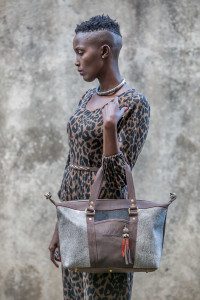
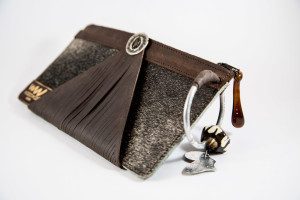
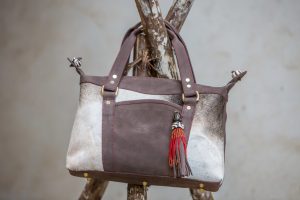
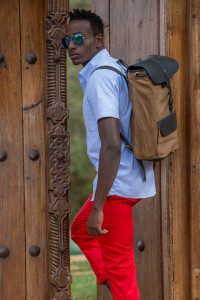
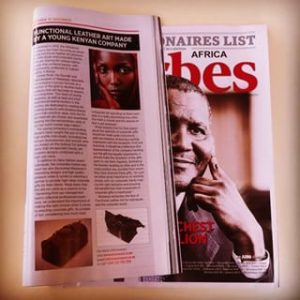

8 comments
I don’t unremarkably comment but I gotta say thankyou for the post on this perfect one : D.
THANKS
THANKS DEAR!
hi!,I love your writing very much! proportion we be in contact more approximately your post on AOL? I need a specialist on this house to solve my problem. Maybe that’s you! Looking ahead to see you.
Really informative blog post.Thanks Again. Great.
Say, you got a nice article.Really thank you! Want more.
Muchos Gracias for your article.Much thanks again. Fantastic.
Looking forward to reading more. Great blog article. Cool.